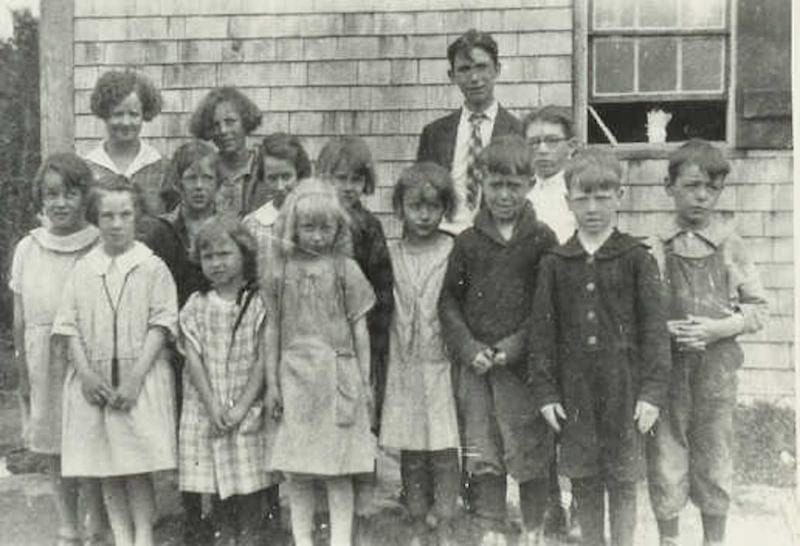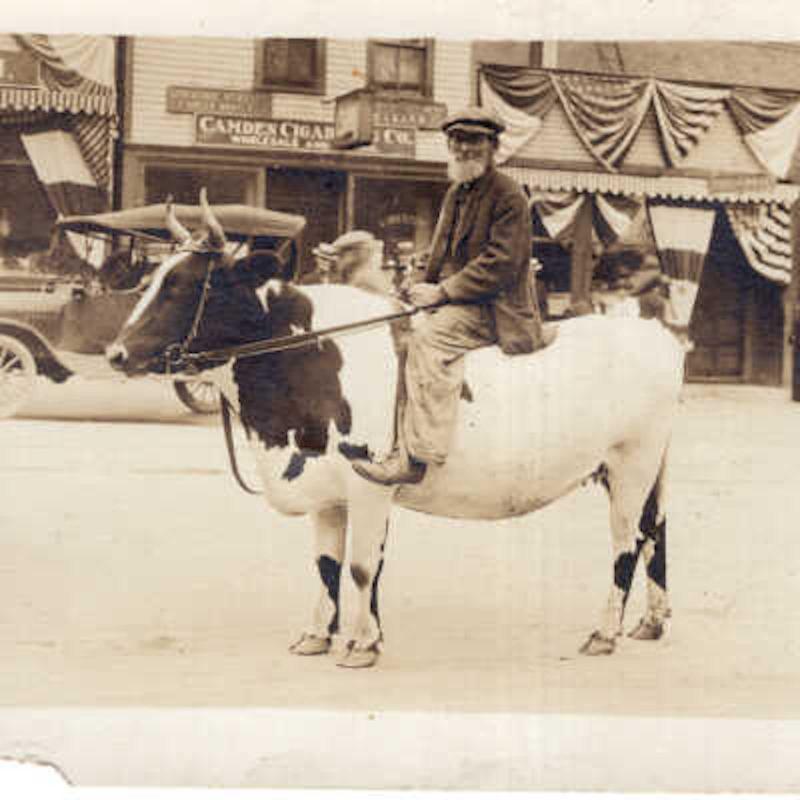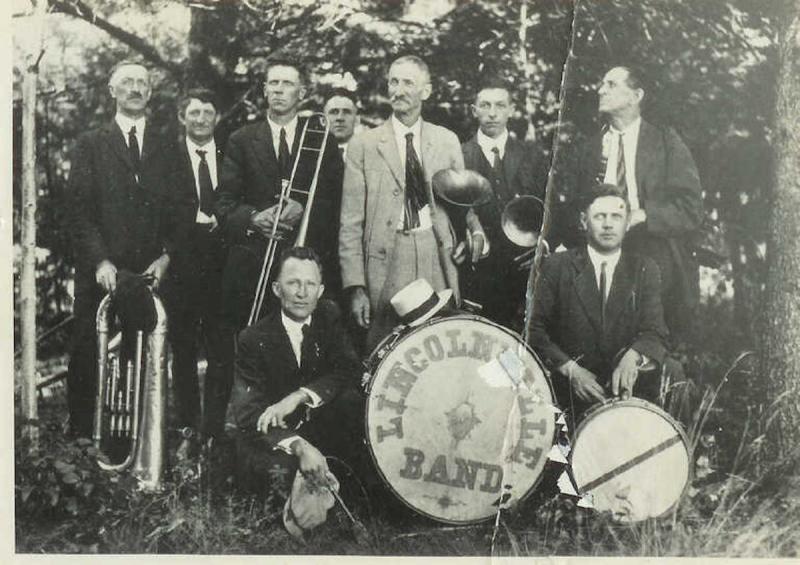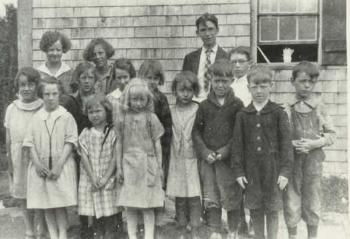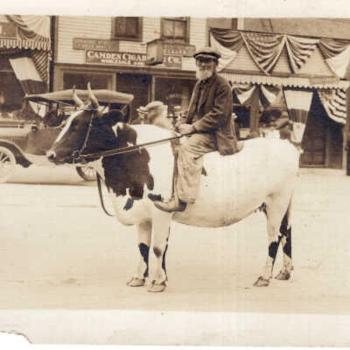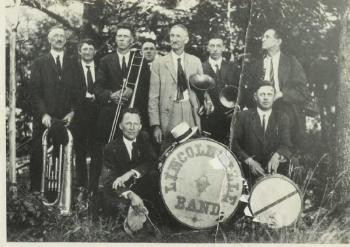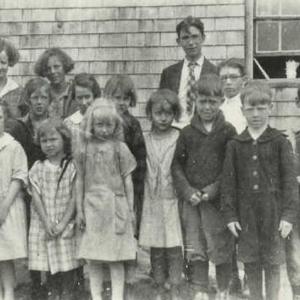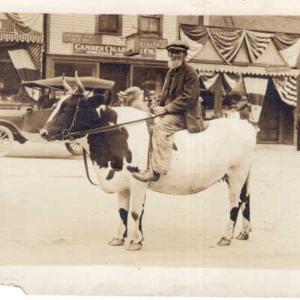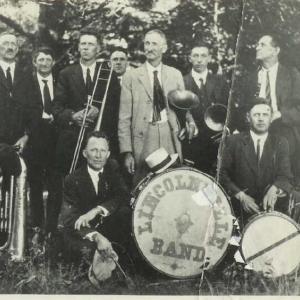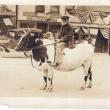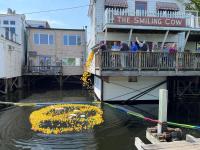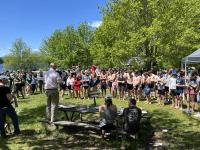This Week in Lincolnville: Rural Living or Living Rural
It’s a phrase I first heard in a piece Lincolnville’s Christopher Beach wrote for the Historical Society’s Indigenous Peoples committee. (Yes, there is such a group, busily working to document our town’s earliest people, mostly through artifacts discovered along the shore; expect to hear more from them in the next few months.) But back to Chris’ distinction between Rural Living and Living Rural.
Rural living, he writes in a draft for the committee, “primarily refers to characteristics that distinguish ‘rural’ from its urban, suburban and even exurban counterparts, for example, distribution of people within a land area, their primary means of earning a living, their typical social and political relationships, their peculiar customs, etc.” while living rural “is to really intend to remain living in this particular place primarily, or largely, because of characteristics such as local, small, personal, and natural.”
People have chosen to live here, to come here, or to stay here if this is where they were born, or for various reasons of their own. Whether it’s for Lincolnville’s “local, small, personal, and natural” characteristics or not, those who’ve decided to make this their home generally find themselves bound by those very elements.
We know our neighbors, and perhaps their stories, we relish the natural features whether we feed the birds outside our window, sail and kayak on our waters, hike the woods, or just enjoy the daily drama of the sun rising and setting.
A moose has apparently been bedding down under the fir trees at the edge of Don’s field evidenced by numerous piles of its scat. A lone male cardinal calls from the same perch high in an ash tree I pass on my daily walk. Tiny green points of spring bulbs are starting to appear amid the muck of last year’s garden. A chance meeting with a couple out for a bike ride turns into a half hour chat on the shoulder of the road, the three of us eager to catch up with our lives, with the news, with the gossip after these long, long months of isolation.
And the stories.
On Islesboro every driver lifts a hand, or maybe just a finger, off the wheel at every other driver. Wally loved to tell about the guy on Slab City who, momentarily flustered at how to wave, hefted the four foot log he was carrying in greeting. Or the fellow who’d turned away from the road to pee; he just raised what was handiest at the moment as we passed. Wally thought that was hilarious.
An elderly woman stumbled and fell on her front lawn, breaking her wrist as it turned out. As she lay there, unable to get up, she waved for help to cars passing by. Good and friendly neighbors, they waved back and continued on their way. (This, btw, happened in a town a bit south of us, a story told by a friend. Surely, here in Lincolnville someone would have stopped!)
CALENDAR
TUESDAY, Mar. 22
Library open, 3-6 p.m., 208 Main Street
WEDNESDAY, Mar. 23
Library open, 2-5 p.m., 208 Main Street
MCSWC Board of Directors, 6:30 p.m., Camden Town Office
Native Plants, 7 p.m. via Zoom, contact Library, 706-3896 or email
FRIDAY, Mar. 25
Library open, 9-noon, 208 Main Street
SATURDAY, Mar. 26
Library open, 9-noon, 208 Main Street
EVERY WEEK
AA meetings, Tuesdays & Fridays at noon, Community Building
Lincolnville Community Library, For information call 706-3896.
Schoolhouse Museum by appointment, 505-5101 or 789-5987
Bayshore Baptist Church, Sunday School for all ages, 9:30 a.m., Worship Service at 11 a.m., Atlantic Highway
United Christian Church, Worship Service 9:30 a.m., 18 Searsmont Road or via Zoom
Dogs run off and the neighborhood comes out to search. The firetrucks go by, and the LBB – Lincolnville Bulletin Board – lights up.
But it’s not all nice. I opened a FB post sent on by our Augusta nephew this morning, and heard – again – the story of Emmeline, this time from the old woman who knew her. It’s the story of how a small Maine town shunned a woman for the supposed sin of an illegitimate child, and the bizarre quirk that ensued. If you don’t know it, here’s the link.
After a winter working with the Historical Society’s collection of photos and diaries and ephemera my head is swimming with the stories of this town’s people. The “local, small, and personal” nature of living rural. A dedicated group of volunteers are becoming familiar with so much of this by organizing the collection. And finally, we can start to share what we’re finding online .
Take a look at our town’s history through the photos, objects, and journals. The work is far from complete; we’ll continue to add more photos and better captions as we go forward. Contact us by email if you have questions or corrections or comments on any of the material put up on this site so far.
And Happy Spring! It arrived yesterday according to the calendar. Here on the coast of Maine we know it by the mud!
School
And it must be spring as the school concert and chorus schedule is out:
Middle School Band and Chorus May 10, 5th grade May 19, K-2 May 23, and grades 3-4 May 26. The best news of all is that with the decline of Covid cases (none reported at LCS last week!) kids can sing and play instruments again.
Along with so many other things that the pandemic brought to a halt, making music and holding performances went away. Nice to see them coming back.
Library
This from Librarian Sheila Polson: “Everyone is invited to join a virtual talk with master gardeners Allison Tunick and Allan Amioka on the benefits of native plants in the landscape on Wednesday, March 23 at 7 p.m.
“Many gardeners, including the volunteers who maintain the beautiful gardens at the library, choose natives for their adaptability to the local climate and reduced requirements for water, pesticides and fertilizer. Native plants can also support a variety of pollinators by providing shelter and foods such as nectar, pollen, seeds and insects.
“On April 20, the library will host a second, related talk with Tunick and Amioka on the University of Maine Cooperative Extension’s Pollinator-friendly Garden Certification Program. They will explain the program application process and how to create a beautiful garden for bees, butterflies, hummingbirds and other pollinators.
“Amioka is a native plant enthusiast with many years of experience as a volunteer at gardens in Maine, including the Wells Reserve at Laudholm. Tunick is a landscape designer, focusing on native plants, pollinators and rain gardens.
“For more information and to receive the Zoom links, please call the library at 706-3896 or email.

